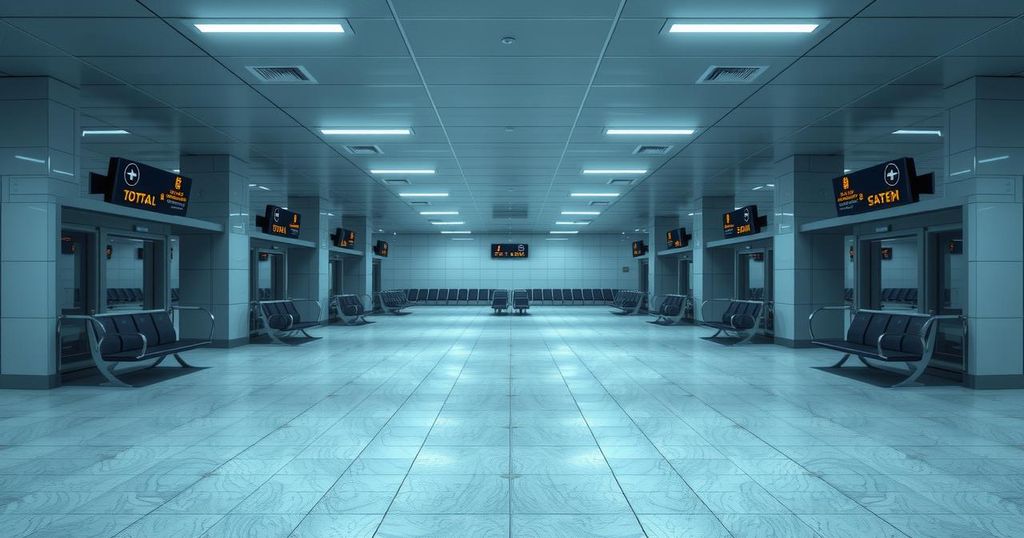Egypt Imposes Travel Restrictions on Military-Aged Men to Combat Recruitment Risks

Egypt has implemented new travel restrictions for men aged 18-35 to Russia and Ukraine to prevent potential recruitment for military service. These regulations seek to enhance national security and address concerns about citizen involvement in the ongoing conflict. The war has also had detrimental economic impacts, affecting tourism and agricultural imports, thereby exacerbating the challenges faced by Egypt.
Egypt has implemented new travel restrictions for its citizens, specifically targeting men ages 18 to 35, due to concerns about potential recruitment for military service amidst the ongoing conflict between Russia and Ukraine. These regulations mandate that individuals within this age group must obtain prior approval from the Egyptian security establishment before traveling to the two countries. Such measures aim to safeguard Egypt’s national security, as warned by lawmakers and security experts about the risks posed by potential enlistment of Egyptian nationals in foreign militaries.
Ibrahim al-Masri, a member of the Egyptian parliament’s Defence and National Security Committee, emphasized the urgency of these regulations, describing them as crucial for protecting national security. He noted that students may fall victim to recruitment temptations, ultimately risking their return to Egypt as national security threats. Additionally, Egypt’s economy, heavily reliant on tourism, has suffered due to the impact of the war, with significant reductions in tourist inflows from Russia and Ukraine, which previously constituted a major portion of visitors to the country.
The economic ramifications are compounded by the war’s effect on agricultural imports, as Egypt has historically relied on Russia and Ukraine for wheat and cereals. With the ongoing conflict, Egypt has faced increased costs for agricultural imports and is now seeking alternative sources while grappling with security concerns stemming from the enlistment of its citizens in the conflict.
The situation was highlighted following the appearance of a video interview with an Egyptian man alleged to be a prisoner of war, claiming he joined the Russian army after being promised release from jail in exchange for service. Security analysts are growing increasingly concerned that significant numbers of Egyptian nationals, potentially hundreds or thousands, could get involved in the conflict, especially considering the recent rise in Egyptian students studying in Russia.
General Mohamed al-Ghabari remarked on the allure of joining the Russian army, citing substantial benefits offered to foreign recruits, and he urged for greater awareness among youth about the associated dangers. Although many students returned home at the onset of the war, those in Russia have largely remained, as Russian institutions continue to present affordable educational opportunities, thereby potentially increasing the risk of recruitment.
Observers draw parallels between the current situation and past conflicts involving Egyptians traveling to join foreign wars, recalling the repercussions of the Afghan jihad in the late 20th century. The Egyptian government remains cautious in its approach to the ongoing conflict, striving to maintain a neutral stance while managing its historical ties with both Russia and Ukraine. Amidst the ongoing tensions, Egyptians are still being recruited, prompting the government to enhance travel restrictions in light of this emerging security threat. The Russian embassy has acknowledged the enforcement of stricter travel regulations but refrained from commenting on the recruitment of Egyptian citizens into military service.
In conclusion, Egypt has enacted stringent travel regulations for military-aged men seeking to travel to Ukraine and Russia amidst concerns about potential military recruitment. The new laws aim to protect national security in light of warnings from lawmakers and experts regarding the risks of foreign military involvement by Egyptian nationals. Moreover, the economic implications of the ongoing war, including reduced tourism and increased agricultural import costs, further complicate the situation, placing additional pressure on Egypt’s economy and security landscape.
Original Source: www.newarab.com







